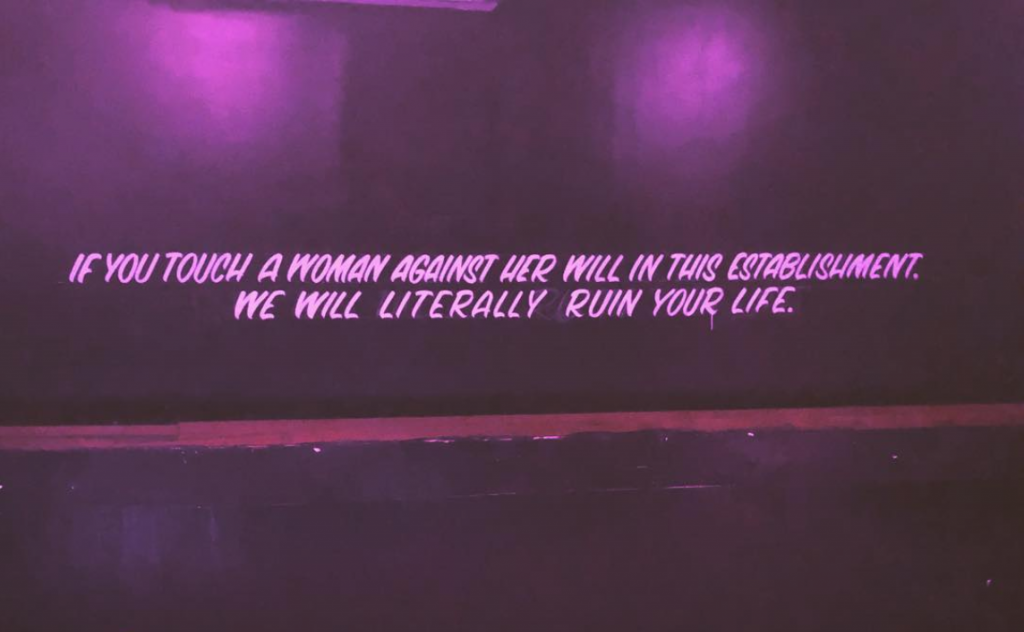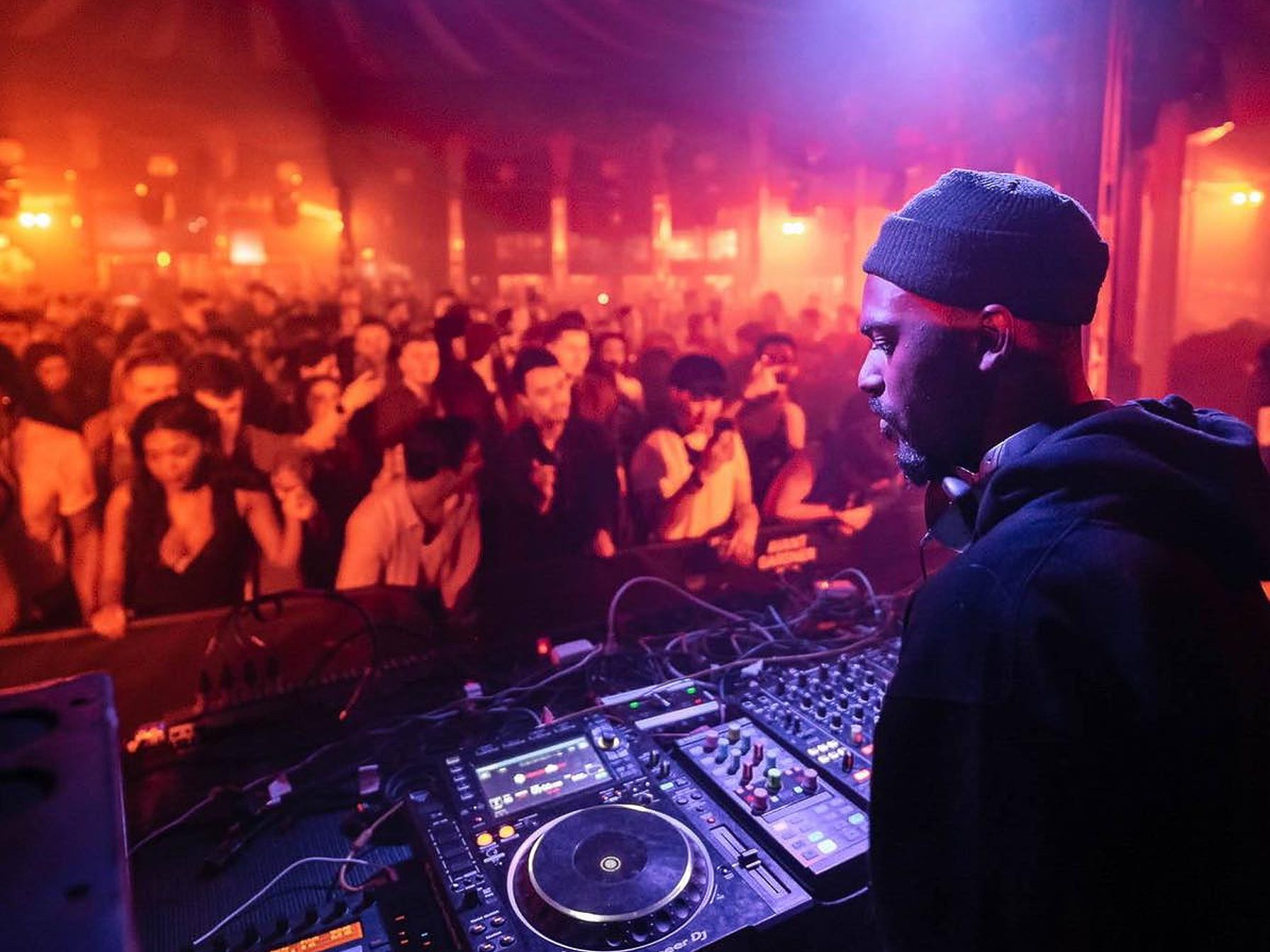Sexual assault in the dance music community continues to be a problem and all of us can take steps to be good allies when situations arise on the dancefloor.
I love a good dance party and if you are reading this, I know you do, too. I also love the ethos of PLUR in the dance community, but we haven’t stood up against sexual assault the way we should. I personally take this very seriously – I volunteer with DanceSafe to promote harm reduction and I’m also a “Consenticorn,” which is a consent monitor program that started at House of Yes in Brooklyn. The hours of training I’ve received from these programs translate into an acute awareness on the dancefloor. This knowledge and awareness is something I want to share with others, as well.
It’s great that we’re currently addressing the issues with performers who are engaging in unacceptable behavior, but the problem cuts much deeper and the burden of change falls on everyone. While the industry and venues must play an important role, it’s also up to each of us to do our part. The more we can each be an ally for one another, the better chance we have of changing the narrative and making sexual assault the exception rather than the rule.
Let’s start with the easiest and most obvious, but often most overlooked point: consent.
As a Consenticorn, our key tenet is effectively “verbal engagement.” First and foremost, we remind each and every patron entering the venue, “We encourage you to interact with strangers! And we REQUIRE that each engagement begins with enthusiastic verbal consent. If it ain’t a HELL YES, it’s a HELL NO! It’s amazing how just setting that expectation changes the vibe in the club. Next, if we see questionable behavior, we engage with the individual and have a brief but pointed conversation. It’s amazing how often we can change behaviors just through some simple conversation and by humanizing everyone in the club.
I encourage you to carry this tenet into your next party. Consent effectively makes everyone an ally! And if everyone did this, we’d eradicate sexual assault right here. But that’s a stretch, so let’s move on to your pre-game planning.
When preparing for an event, be mindful with your crew and have a solid communication plan so you can keep the members of your group safe.
As someone very involved in the local scene, I often find it challenging to select my crew for a given event. Sure, I’m going to bounce around and see other groups and other friends, but I think it’s important to intentionally select a crew to consider your family and support system for the event. The basis of understanding among your crew should focus on awareness and communication. I like to make it clear to the group that anyone in the group can trust everyone in the group to listen openly if something is happening during an event. The group must genuinely avoid judging the actions of each other.
Next is to identify and share a meeting point for the crew. If anyone loses contact, they should go to the meeting point to be reunited. Cell phones help alleviate the need for this, but they aren’t always reliable and we’ve all had those times when we were so deep in the feels that we didn’t check them. Establishing a meeting point upon event entry is a quick and simple effort that will pay in dividends if ever needed!
Finally, have an exit plan. This is a tough but important one. I strongly recommend that every group have someone that is willing to leave early if anyone else needs to go and needs support. This is easy for me, personally – I’ll volunteer for this role anytime. But if your group is worried about missing out on the event over someone’s well being, you may need to reevaluate your group. On the other hand, if you have a core crew that goes to many events it should be easy to rotate this role through the group when needed.

Now we’ve got a trusted crew, a shared understanding of how we want our experiences to play out, and a way to safely abandon the event if needed.
If you just do this, you’ve already created a safer space for your crew than the majority of others. Way to go! Also, you’ve done this before the event, which means you aren’t taking time and energy away from the event. On the contrary, you’ve probably taken a load off for your crew and now they have more energy to give to the event.
So, you make it to the dance floor – what do you need to do to keep your crew and others around you safe?
First and foremost, simply be aware of your surroundings. It’s often all too easy to spot the drunk, horny, inconsiderate (or worse) person that is likely to be a threat. Sometimes just identifying them and knowing where they are can be enough. The vibes you’ll put out speak louder than you might expect.
This is where you can also begin to become an ally to strangers. Your actions will begin to speak to others and this can be an important step. For example, if you see someone that may be encroaching without consent, there are a few steps you can take to show your intention without fully engaging. It’s always a good idea to get a verbal assessment of the situation, so try to engage with the people that are being encroached upon as much as possible. You can ask them if they know the person or people in question. If they say no, ask if the advances are welcome. A possible victim will nearly always be happy to tell you if someone’s advance isn’t welcome; they rarely get this support.
Once you know that there is an unwanted advance, you can simply stay engaged with these folks and even position yourself between them and the potential threat. Depending on the headspace and intentions of those advancing, they may simply disengage and move on, which would be a terrific result. However, they are more likely to take this as a challenge and try even harder to get past you and on to these targets.

What often goes through the mind of a potential ally at this point is, “I don’t want to risk myself for someone I don’t know.”
I won’t lie to you, there is always a risk of escalation or physical violence. But getting involved isn’t just the right thing to do – it’s truly imperative that we take action each and every time there is a possible threat. Don’t ever think, “Oh, they’re just drunk and they’ll go away soon.” Sometimes that’s true, but do you want to learn that your inaction resulted in an assault?
To counter the potential threat to yourself, consider that your action is likely to be observed by others, and it only takes a few others to join the cause to help eradicate the threat. I’ve seen several times where a situation could escalate, but, instead, the crowd came to the rescue. Three or four people saying loudly, “Hey, we got your back,” speaks volumes, and I’ve seen this support alone cause the perpetrators to move on.
What about when things do escalate?
Well, first off, I’d advise that you take no direct action unless you have at least one friend with you. This way, if an escalation occurs, they can bail and get security. If things might get physical, don’t ever take matters into your own hands, figuratively or literally. The moment you physically engage with someone you may end up just as guilty as the original threat and it can result in your removal from the venue or worse. Stay calm, stay cool. Hold your ground. Try to engage in conversation. Time is (usually) your friend; conversation delays action and often more people nearby become aware and either join in to help or security sees the situation and checks in. Your goals should be to safely extract from the situation, get out of there as quickly as possible, and inform security.
These are just a few of the important ways to create a safe space and be an ally to those one another. Educate yourself on what consent really means and what threats really look like. Here’s one great source from Bass Coast and, thankfully, many more are just a Google search away. I encourage you to take the idea of being an ally with you to every event and look out for each other so we can all party together in the safest spaces. And if you have additional ideas, we’d love to hear from you in the comments.
If you or anyone you know has experienced sexual assault at a festival or anywhere in life, here are some resources for support:
RAINN (Rape, Abuse & Incest National Network) runs the National Sexual Assault Hotline to offer support to victims and their families. Their services are free and confidential: 1-800-656-HOPE (1-800-656-4673) (Available 24 hours a day by phone and by online chat.)
Relief After Violent Encounter (RAVE) — this organization can help you find counseling and therapy after a violent encounter.
RAVE also has a domestic and sexual violence Emergency Response Team which is deployed through law enforcement to provide emergency crisis intervention to victims immediately after an assault. Reach out to their Emergency Response Program Coordinator, Lisa Cloman, at 616-527-3351 ext. 231 or [email protected].
DJ Mag and the Association for Electronic Music (AFEM) created a support hotline specifically for people to report sexual harassment in the dance music industry. This helpline is staffed by trained experts who will listen and support anyone who calls: (800) 030-5182.









Lots of people will find this post helpful. Priceless suggestions on stopping sexual assault. Thanks for sharing.